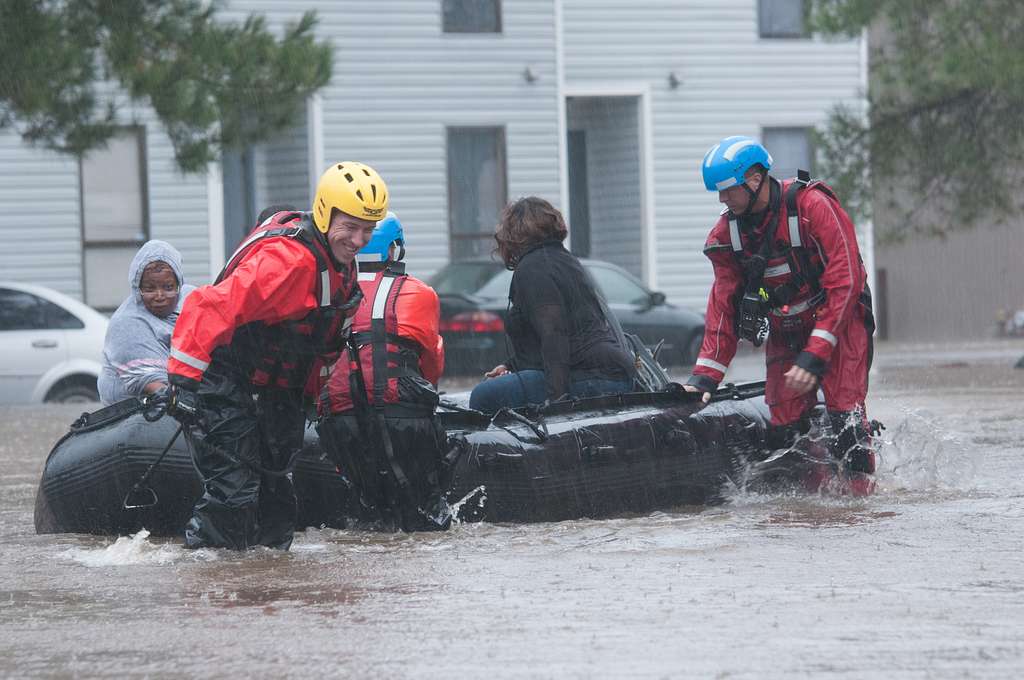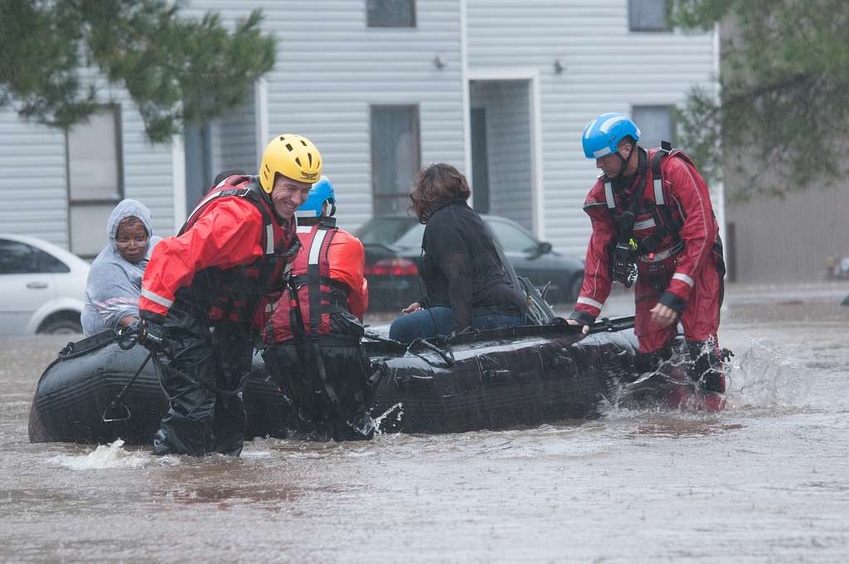When Hurricane Helene struck Western North Carolina in September 2024, it caused more than just structural devastation. Communities were cut off, lives were upended, and essential resources like clean water and communication networks were disrupted. The scale of the disaster was immense—over 1,400 landslides occurred, while roads, homes, bridges, and water systems sustained severe damage. Amid this crisis, local organizations and their partners mobilized to address urgent needs and begin the challenging path to recovery.
One of the first to act was Wine To Water, a Boone-based nonprofit best known for providing clean water in disaster-hit and underserved regions worldwide. Suddenly, the organization faced an emergency in its own community.
“I had to remind myself several times that I was still in the United States,” shared Courtney Mattar, Director of Partnerships at Wine To Water. “It felt like I was back in places like Nepal where I’ve witnessed similar flood devastation. The destruction was that overwhelming.”
With its strong community connections and disaster-response expertise, the nonprofit quickly shifted focus from international relief to local support. Lenovo, a longtime partner of Wine To Water’s global mission, also stepped in to assist Western North Carolina.
Within hours, Wine To Water teams were on the ground, navigating blocked roads and delivering clean water by any means necessary—using trucks, ATVs, and even mountain bikes. They reached families suddenly left without safe drinking water or shelter. Lenovo aided these efforts by sending the first truckload of clean water to the area, enabling the nonprofit to start critical distributions when access was nearly impossible.
“The first call I received once my phone had service was from Lenovo,” Mattar recalled. “They simply asked, ‘What do you need?’ That kind of support felt like a giant hug—it reminded us we weren’t alone.”
Over the following weeks, Wine To Water expanded its work from emergency relief to long-term recovery. The team tested tap water in rural homes, distributed filters, and repaired wells and spring boxes that serve as vital water sources. They also addressed housing needs. With Lenovo’s support, they provided over 55 tiny homes to families displaced by the storm, offering safe and warm shelter during the winter months.
Technology played a critical role as well. Through its ongoing partnership with the American Red Cross, Lenovo had previously donated 750 computers as part of the Red Cross Disaster Responder Program. After Helene, these devices became crucial in shelters, helping people reconnect with loved ones, access vital services, and stay informed. The computers also powered Red Cross View, a mapping tool that tracks shelter availability, damage assessments, and other recovery needs.
“Lenovo helped the Red Cross prepare well before Helene hit, and they’ve continued to be there for us,” said Rebecca Pittman, Regional Disaster Officer for the American Red Cross. “Partnerships like this allow us to respond swiftly and effectively wherever we’re needed.”
Connectivity was another vital factor. Through a collaboration with Operation Connect Carolinas, Lenovo donated equipment to restore internet access in areas where communication had been completely cut off. Reconnecting people to emergency services, loved ones, and community networks has been essential for recovery.
While the road to full recovery remains long for many in Western North Carolina, the response has demonstrated extraordinary resilience and collaboration. From neighbors helping neighbors to nonprofits and corporate partners stepping up, recovery is taking shape. It is a slow, challenging process, but thanks to the dedicated efforts of organizations like Wine To Water, the Red Cross, and Operation Connect Carolinas—along with the strength of local communities—progress continues, one home, one family, and one connection at a time.
One of the first to act was Wine To Water, a Boone-based nonprofit best known for providing clean water in disaster-hit and underserved regions worldwide. Suddenly, the organization faced an emergency in its own community.
“I had to remind myself several times that I was still in the United States,” shared Courtney Mattar, Director of Partnerships at Wine To Water. “It felt like I was back in places like Nepal where I’ve witnessed similar flood devastation. The destruction was that overwhelming.”
With its strong community connections and disaster-response expertise, the nonprofit quickly shifted focus from international relief to local support. Lenovo, a longtime partner of Wine To Water’s global mission, also stepped in to assist Western North Carolina.
Within hours, Wine To Water teams were on the ground, navigating blocked roads and delivering clean water by any means necessary—using trucks, ATVs, and even mountain bikes. They reached families suddenly left without safe drinking water or shelter. Lenovo aided these efforts by sending the first truckload of clean water to the area, enabling the nonprofit to start critical distributions when access was nearly impossible.
“The first call I received once my phone had service was from Lenovo,” Mattar recalled. “They simply asked, ‘What do you need?’ That kind of support felt like a giant hug—it reminded us we weren’t alone.”
Over the following weeks, Wine To Water expanded its work from emergency relief to long-term recovery. The team tested tap water in rural homes, distributed filters, and repaired wells and spring boxes that serve as vital water sources. They also addressed housing needs. With Lenovo’s support, they provided over 55 tiny homes to families displaced by the storm, offering safe and warm shelter during the winter months.
Technology played a critical role as well. Through its ongoing partnership with the American Red Cross, Lenovo had previously donated 750 computers as part of the Red Cross Disaster Responder Program. After Helene, these devices became crucial in shelters, helping people reconnect with loved ones, access vital services, and stay informed. The computers also powered Red Cross View, a mapping tool that tracks shelter availability, damage assessments, and other recovery needs.
“Lenovo helped the Red Cross prepare well before Helene hit, and they’ve continued to be there for us,” said Rebecca Pittman, Regional Disaster Officer for the American Red Cross. “Partnerships like this allow us to respond swiftly and effectively wherever we’re needed.”
Connectivity was another vital factor. Through a collaboration with Operation Connect Carolinas, Lenovo donated equipment to restore internet access in areas where communication had been completely cut off. Reconnecting people to emergency services, loved ones, and community networks has been essential for recovery.
While the road to full recovery remains long for many in Western North Carolina, the response has demonstrated extraordinary resilience and collaboration. From neighbors helping neighbors to nonprofits and corporate partners stepping up, recovery is taking shape. It is a slow, challenging process, but thanks to the dedicated efforts of organizations like Wine To Water, the Red Cross, and Operation Connect Carolinas—along with the strength of local communities—progress continues, one home, one family, and one connection at a time.


 Disaster Relief in Western NC: Wine To Water & Lenovo’s Hurricane Helene Response
Disaster Relief in Western NC: Wine To Water & Lenovo’s Hurricane Helene Response





 Companies
Companies